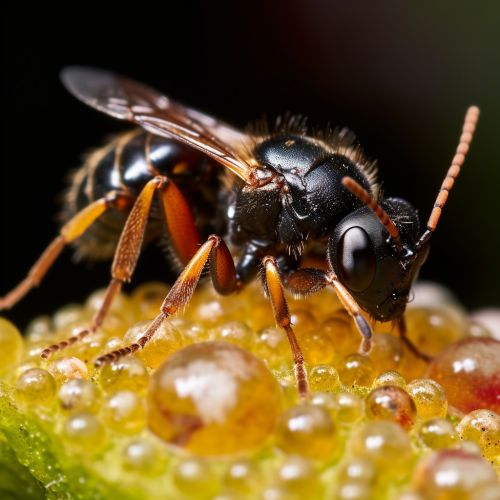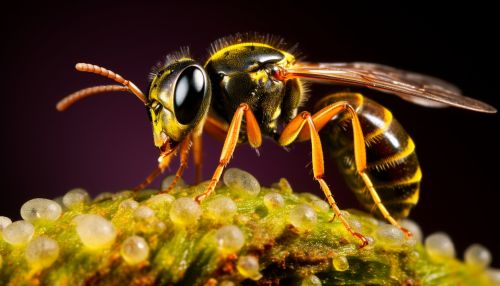Parasitoidism
Introduction
Parasitoidism is a non-mutual relationship between species, where one organism, the parasitoid, lives in or on another organism, causing it harm and often death. Unlike true parasites, parasitoids eventually kill or sterilize their hosts. This unique biological interaction is a key aspect of the field of parasitology.


Biology of Parasitoidism
Parasitoids are typically insects in the order Hymenoptera, which includes wasps, bees, and ants, and Diptera, the flies. However, parasitoidism is also found in various other groups such as fungi, plants, viruses, and even mammals.
Life Cycle
The life cycle of a parasitoid can be quite complex and varies greatly among species. However, a typical life cycle involves the adult parasitoid laying eggs in, on, or near a host. The eggs hatch into larvae, which feed on the host, eventually leading to its death. The larvae then pupate, often within the dead host, and emerge as adults ready to mate and continue the cycle.
Host-Parasitoid Interactions
The interaction between parasitoids and their hosts is a fascinating area of study in ecology and evolutionary biology. Hosts often evolve defenses to parasitoid attack, such as immune responses or behaviors that deter parasitoids. In turn, parasitoids evolve counter-defenses, such as immune-suppressing chemicals. This ongoing "arms race" can drive the evolution of both host and parasitoid species.
Ecological Role
Parasitoids play a crucial role in ecosystems, often acting as important regulators of host populations. This can have cascading effects on community structure and function. For example, parasitoids can help control pest species, providing a valuable service in agricultural ecosystems.
Parasitoidism in Agriculture
Parasitoids are widely used in biological pest control programs. By introducing parasitoids, farmers can reduce the need for chemical pesticides, which can have harmful side effects on the environment and non-target species. Parasitoids are particularly effective in this role because they are often highly specific to their host species, reducing the risk of unintended ecological impacts.
Parasitoidism in Medicine and Biotechnology
While parasitoids are best known for their role in ecology and agriculture, they also have potential applications in medicine and biotechnology. For example, parasitoid venoms are a rich source of bioactive compounds that could be used to develop new drugs. Furthermore, the complex life cycles and host-parasitoid interactions of these organisms provide valuable models for studying fundamental biological processes.
